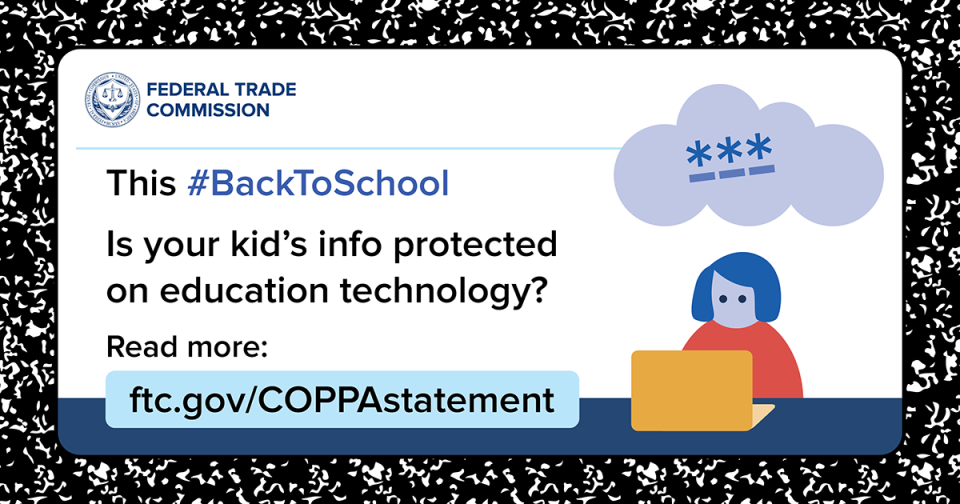
It's back to school season and as you’re getting your kids ready for the new school year, the FTC wants you to know we’re thinking about your children’s privacy while they use education technology to do their schoolwork.
Have you ever wondered what information education technology is gathering from your kid? The FTC has, and we’ve issued a policy statement that put ed tech on notice: Kids shouldn’t have to give up their privacy rights to do their schoolwork or go to class remotely. In other words, ed tech companies can’t require parents and schools to agree to the comprehensive surveillance of children for kids to use those learning tools.
You might have heard of the Children’s Online Privacy Protection Act — also called COPPA. It’s at the center of the FTC’s efforts to protect kids’ privacy in the digital world. This law, enforced by the FTC, says that any site or service (think apps) that COPPA covers has to get a parent’s (or in some cases, a school’s) OK before it collects personal information from your child under 13. COPPA also protects kids’ privacy in other ways, like limiting how long companies can keep your child’s personal information. When a company breaks the rules, the FTC can sue.
With the pandemic-inspired explosion of ed tech, the FTC wants to make clear that ed tech companies offering online services directed to kids under 13 must follow the law, including by properly safeguarding your child’s personal information and, where a company relies on the school to provide consent, using kids’ information only for school-related purposes, not for things like marketing.
So, check out the Policy Statement itself for the details. But parents, here’s the message that industry is getting: The FTC is watching, ever more closely, what kid info you collect, how you use it, for how long you keep it, and how you protect it.
To keep up with the latest FTC actions, as well as the top frauds and scams, sign up for FTC Consumer Alerts: ftc.gov/consumeralerts.

This "spying" has been going on for many years to no avail. The industry is tooooo powerful.
Change will require strong effort. On the other hand, we need these tech industries and understandably they must earn a prophet, We can all work together and create a balanced approach.